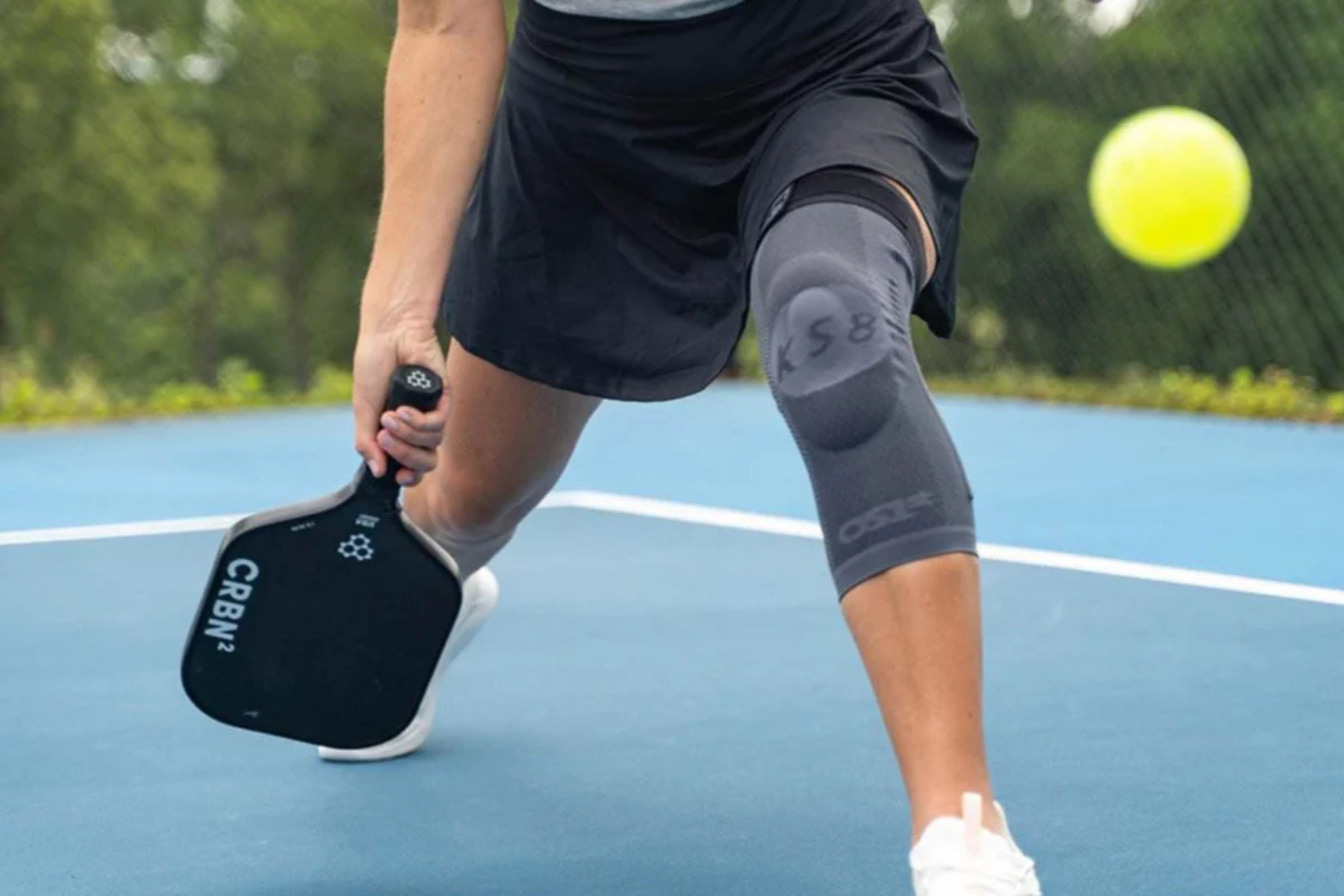Do Compression Sleeves, Taping, or Braces Really Help in Pickleball?
If you’ve spent any time on a pickleball court lately, you’ve probably noticed the growing army of players suited up like they’re headed into battle—compression sleeves on arms and legs, colorful strips of tape peeking out under shirts, and braces supporting everything from elbows to ankles.
So, what’s the deal? Is it fashion? Function? Or just players doing whatever it takes to stay on the court a little longer?
Let’s break it down.
Compression Gear: Cozy, Supportive, and Surprisingly Cool-Looking
Photo by OS1st
Compression sleeves aren’t just for marathoners and weekend warriors anymore. In pickleball, they’re popping up everywhere—and not just because they look cool (even though… yeah, they kinda do).
What They Do:
Compression gear is designed to increase blood flow, reduce swelling, and offer light support to muscles and joints. For pickleball players, that could mean:
Less post-game soreness
Reduced muscle fatigue
A little added warmth in cooler temps
Some folks swear their sleeves give them a boost in endurance or help with recovery time. Others just like the snug, secure feel during play. Either way, compression gear is a win for comfort—and if it gives you a confidence edge, even better.
We'll be taking a deeper dive soon into some of the top compression brands on the market—what makes them different, who they’re best for, and how they hold up on the court. Stay tuned!
Taping Tricks: What’s With All the Neon Stripes?
Ever seen someone rocking bright, oddly placed tape across their shoulders, knees, or back? That’s kinesiology tape—used by athletes of all levels to help with pain, posture, and muscle performance.
What It Does:
When applied correctly (which is key), tape can:
Support injured or weak muscles
Improve circulation
Reduce swelling or inflammation
Help cue posture and body mechanics
It doesn’t restrict movement like a brace—rather, it’s meant to enhance it. But a word of caution: tape isn’t magic. And if it’s slapped on without a strategy, it won’t do much except make you look like a walking craft project.
Photo by KT Tape
Brands to Know:
KT Tape – a go-to for weekend warriors
Heali Medical – known for infused recovery benefits
Just like compression gear, we’ll be testing and reviewing some of the most popular kinesiology tape products soon—breaking down what works, what doesn’t, and what might be worth keeping in your pickleball bag.
Braces: The OG of Joint Support
Sometimes your body just needs backup. That’s where braces come in. For chronic issues like tennis elbow, Achilles tendonitis, or cranky knees, braces offer real structure and support—especially if you’re returning from injury or trying to avoid one.
What They Do:
Restrict movement in vulnerable joints
Offer compression and stability
Help reinforce weakened muscles or ligaments
Braces tend to be more heavy-duty than sleeves or tape, so they’re not always ideal for speed or agility. But when you need them, you need them.
We are going to be taking a deeper dive into some of the top brands in this space over the next few weeks.
So... Do They Actually Work?
The short answer: it depends. Some players swear by compression and taping, others prefer braces, and many rotate between them depending on the day, the body part, and the intensity of play.
Ultimately, gear like this can:
Help you play longer
Reduce your risk of injury
Make you feel more confident and supported
But none of it replaces proper warm-ups, recovery, or technique. And while your buddy’s KT tape trick might look cool, it’s always a good idea to consult a doctor or physical therapist for guidance—especially if you're nursing a serious issue.
Final Thoughts
Pickleball might be low-impact compared to other sports, but let’s be real: those quick pivots, dives, and smashes can sneak up on your joints if you’re not careful. So whether you’re strapping on a brace, wrapping up in tape, or rocking some compression swag—just know you’re not alone.
You are your body’s biggest asset on the court. Protect your joints like your dink depends on it.



